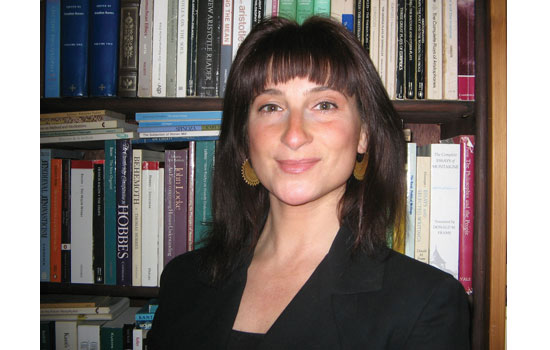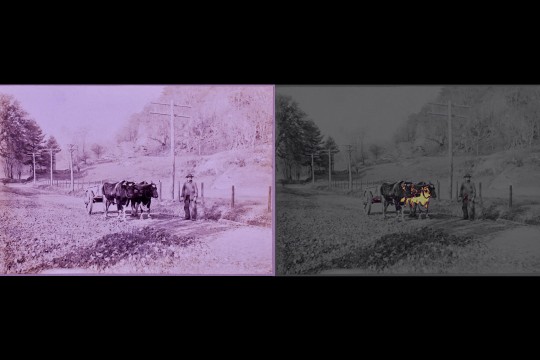Philosopher Investigates the Work of John William Miller
Katie Terezakis examines Miller’s relevance for understanding of authority and language
Katie Terezakis
Katie Terezakis, assistant professor of philosophy at Rochester Institute of Technology, has been awarded a John William Miller Fellowship by Williams College. The award is presented to philosophers conducting research that utilizes the thought of 20th century American philosopher John William Miller.
Terezakis will use the fellowship to fund a one-year sabbatical, during which she will make use of the Miller archives housed at Williams College to research a book titled The Authority of Utterance. Terezakis’s work will examine the relationship between authority and discourse, using Miller’s “actualist” position on cognition, grammar, and symbolic action. She will also develop a model of linguistic meaning that seeks to describe the ways in which authority is established, maintained, and extended, in and through linguistic forms.
“Miller took philosophy’s task to be a deliberate examination of both the conditions of conflict and of the expressions that arise as conflicts are launched, resolved or normalized,” notes Terezakis. “As such, Miller is an important guide in better understanding how and why we take certain assertions, or kinds of assertions, to be authoritative, or take them for granted to such a degree that the language in which they are formulated seem to do our thinking for us.”
Terezakis is the author of The Immanent Word: The Turn to Language in German Philosophy 1759-1801, the editor of Engaging Agnes Heller: A Critical Companion and co-editor, with Jack Sanders, of Lukács’s Soul and Form.
John William Miller was the author of numerous works, including The Paradox of Cause and The Task of Criticism, many of which were unpublished in his lifetime and are now appearing in print for the first time. He served as chair of the philosophy department at Williams from 1935-1955. The Miller Fellowship Fund is dedicated to promoting Miller’s research and scholarship in contemporary thought.













